Home education could be the chance at success that South Africa’s children need
Since the global pandemic began, many families have been plunged into home education due to lockdown regulations. It has brought to light many more opinions on the subject of home education, such as concern over whether parents are actually capable of educating their children and whether only teachers are qualified to educate children. This article will explore what research has shown to be the case regarding home education.
In a radio interview on CapeTalk with Prof. Jonathan Jansen on 14 April 2020, he said, “This idealised notion that you can simply swap the teacher for homeschooling by a parent is nonsense. I have always been against homeschooling, because it underestimates the complexity of what it means to teach.”
Negative opinions on home education versus research
In another radio interview on Classic Business with Prof. Jonathan Jansen on 15 April 2020, he added, “I personally don’t believe in homeschooling. I am against it for complex reasons, but at the moment, the assumption that a parent can be a teacher (that provides) training and support and everything that goes with it is akin to you doing vascular surgery on your kid in the kitchen. It is just ridiculous. There is a huge amount of professional knowledge and complexity both into teaching and learning and that must be respected… I just want to a little bit of a damper on the hyper enthusiastic response to homeschooling as a replacement for what teachers do in 26 000 schools every day.”
The comparison of home education to vascular surgery is preposterous. No ordinary citizen would ever attempt such a procedure at home. Almost everyone has enough good sense to not attempt vascular surgery at home, and no one is encouraging them to do so either. However, there are many home educators who are extremely successful without any teaching qualifications. If the analogy of vascular surgery were valid, then the research should also clearly indicate that home education is a massive failure across the board (which it’s not).
Is there any correlation between a parent’s qualifications and successful outcome of home education?
In short, no. Dr Brian Ray from the National Home Education Research Institute has done extensive research on home education and the various factors that affect the outcome. It shows some interesting results, quoted here:
- The home-educated typically score 15 to 30 percentile points above public-school students on standardized academic achievement tests. (The public school average is the 50th percentile; scores range from 1 to 99.) A 2015 study found Black homeschool students to be scoring 23 to 42 percentile points above Black public school students (Ray, 2015).
- Homeschool students score above average on achievement tests regardless of their parents’ level of formal education or their family’s household income.
- Whether homeschool parents were ever certified teachers is not related to their children’s academic achievement.
- Degree of state control and regulation of homeschooling is not related to academic achievement.
- Home-educated students typically score above average on the SAT and ACT tests that colleges consider for admissions.
- Homeschool students are increasingly being actively recruited by colleges.
It is therefore not the parent’s qualifications that are the main factor in the child’s successful education.
Are qualified teachers more successful at home educating children?
Ex-public-school teacher Marietjie Ueckermann who opted for homeschooling, says, “Research says NO. Historically, parents successfully taught their own children. It is the oldest form of education. Parents historically did not have qualifications to teach their children. It is/was called parenting. Qualified teachers are a product of the industrial age (which are long gone). They however still teach to the needs and the model suitable to the industrial age."
On current education in schools, she adds, “Based on its outcomes one could argue that public education has reached its lowest point and that it failed learners miserably. Not adapting to the information era, it is still stuck in the industrial mould. Structured “qualified” education simply cannot adapt quickly enough to keep up with the ever-changing demands of the information age.”
Parents who home educate, on the other hand, are free to use a more creative and less pressured approach to teaching their children in a way that suits their needs, pace and learning style.
Nicky Wesson who was a Grade 1 teacher at a private school before home educating her own children, said, “Home school curriculums have not been designed for teachers. They've been designed for parents who want to teach their children, so you don't need a qualification to be able to follow the curriculums that are out there for home schooling. For instance, one of the maths curriculums that many home schoolers use, is taught by a professor who teaches the lesson on DVD and then there's a manual for the mom to follow. Many moms who maybe weren't good at maths now enjoy learning maths alongside their children. If we're not sure about something, we can go to the Internet and research it and you're also showing your children how to look for information.”
What is the biggest determining factor in the success of educating a child?
Interestingly enough, it’s relationship, not curriculum. Again, this is also proven by research such as that of clinical psychologist and expert on child development, Dr. Gordon Neufeld. In a recent article posted on 16 April 2020, he wrote:
“In short, when distilled to the essence, the irreducible needs of a child are:
a) right relationships with the adults responsible for the child
b) a soft heart where a child can feel tender emotions
c) sufficient rest emotionally and from the work of attachment
d) true play where the engagement is in the activity rather than the outcome.”
Dr. Neufeld then explains the ideal context for these criteria, adding, “These are the key factors in healthy development regardless of race, religion, gender, culture or society… When these conditions exist for a child, growth happens, potential unfolds, individuality emerges, curiosity appears. The critical question is: where are these four conditions more likely to exist for a child – in a good school or in a good home? Unfortunately, we all know homes where these conditions are missing, with tragic results for the children involved. In these cases, school is certainly the better bet. But the tragedy in today’s society is that parents in fully functioning homes are believing more in what school has to offer than in what they themselves have to offer their children. They have lost confidence in themselves as being the answer to what children need most.”
What Dr. Neufeld found in research is also echoed in the preamble of the Children’s Act which states : “… the child, for the full and harmonious development of his or her personality, should grow up in a family environment and in an atmosphere of happiness, love and understanding …”
But what about families who don’t have enough resources?
In a radio interview on CapeTalk with Prof. Mary Metcalfe on 13 April 2020, he said, “The notion of homeschooling requires access to resources and access to supervision, which is not normal in the majority of South African households. … The strong messaging that I would like to see in the public space is less about doing homeschooling or replacing what happens at school, and a greater focus on how we care [for] and protect all of our children. … How do we create for [our children] a daily routine that gives them support, structure and purpose; that will hopefully include learning to the extent that some families have access.”
There are plenty of resources available, of which the most basic are libraries, bookshops, and the internet, of course. Another option is to join groups called co-ops, where families home educate their children together. If South Africa would change the regulations to legalize these groups, or cottage schools as they are called, it would be an effective and simple solution to providing even more resources to more families.
Bouwe van der Eems, chairman of the Pestalozzi Trust (a group that advocates for home educators and relevant legislation), says, “Many cottage schools are not registered, but provide valuable services to communities, at rates that even the poorest communities can afford. Poor people are willing to pay for these schools, in order to give their children something better than public school.”
Public schooling is not the only way to provide children with routines and stability. Routines begin in the child’s home first anyway. It is also unfair to pretend that there is better supervision and routine in schools. Many schools have problems with chaos, lack of discipline and teacher absence, which are often the reasons why parents remove their children from schools.
Does home education have to replace teachers completely?
Of course not. Over the last number of years, the complaints from schools about parents not being sufficiently involved in their child’s education can be much better addressed if parents and teachers can collaborate in redefining what education can look like. This may mean more tutoring, more child-paced learning (as made possible by technology) and individual attention for the learner from both the teacher and the child.
Teachers still have a role to play but methods are changing. Schools and universities will have to make long overdue adjustments, have long overdue conversations with more stakeholders and remember the original purpose of education: helping children maximise their potential, talents, and intellect all the way into adulthood and the working world.
Are you starting homeschooling?
If you would like some helpful resources to get you started on the right track, click on any of the following pages:
- Beginner’s guide to homeschooling
- Choosing homeschool curriculums
- Free homeschooling resources
- South African homeschool support groups

Events
Legal & Research
Centres
Homeschool ABC
Support
Curriculums
Ginini Training Institute
Ginini Academy is an EdTech home education content provider ...
Sunrise readers: From pre-reading ...
Parents and educators - these popular reading books with an ...
Learn, code and create with Ubbu
Introducing ubbu!An Adventure of Code and Play! Learn, Code ...
Has no content to show!



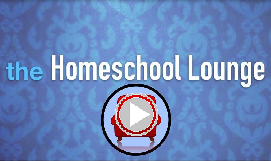




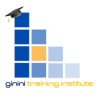



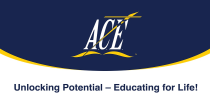

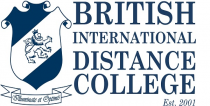

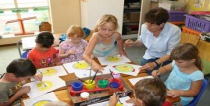





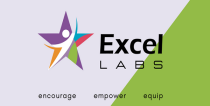









Comments